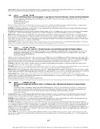Please use this identifier to cite or link to this item:
https://accedacris.ulpgc.es/jspui/handle/10553/76196
| Title: | Blockade Of Prostaglandins And Nitric Oxide In-vivo Reduces State 3 Mitochondrial Respiration In Human Skeletal Muscle | Authors: | Fuentes-Nieto, Teresa Hellsten, Ylva Saltin, Bengt Boushel ---,Robert |
UNESCO Clasification: | 32 Ciencias médicas 241117 Fisiología de la respiración |
Keywords: | Prostaglandin Nitric oxide Mithocondrial respiration |
Issue Date: | 2010 | Journal: | Medicine and Science in Sports and Exercise | Conference: | 57th Annual Meeting of the American-College-Sports-Medicine/Inaugural World Congress on Exercise is Medicine | Abstract: | PURPOSE: The purpose of this study was to examine in humans the independent and combined effect of NO and PG blockade with L-NMMA and Indomethacin (Indo) on mitochondrial respiration in muscle from biopsies of the vastus lateralis (VL) following knee extension (KE) exercise. METHODS: Mitochondrial respiration was measured ex-vivo by high resolution respirometry in saponin-permeabilized fibers following 6 min KE in control (CON, n=8), arterial infusion of LNMMA (n=4) and Indo (n=4) randomized in order, followed by combined inhibition of NO and PG (L-NMMA + Indo, n=8). RESULTS. ADP-stimulated state 3 respiration with substrates for complex I (glutamate, malate) was reduced 50% by Indo compared to CON. State 3 O2 flux with convergent electron input through both complex I and II with addition of succinate was equally reduced with Indo (20%) and L-NMMA + Indo (15%) compared to CON and LNMMA alone. Uncoupled O2 flux determined by titration of the ionophore FCCP was not increased above state 3 respiration with Indo suggesting tight coupling to oxidative phosphorylation. Graded titrations of L-NMMA into the respirometer in CON muscle reduced state 3 respiration by 12% only at a supra-physiological dose, while titration of Indo caused a linear reduction at all doses within and above the physiological range. CONCLUSION: The results indicate that inhibition of PG by indomethacin inhibits state 3 mitochondrial respiration primarily at complex I of the respiratory chain. This effect may in part explain the in-vivo reduction in muscle O2 uptake during exercise with double blockade of NO and PG, since blockade of NO by L-NMMA counteracts the inhibitory effect of Indo. | URI: | https://accedacris.ulpgc.es/handle/10553/76196 | ISSN: | 0195-9131 | DOI: | 10.1249/01.MSS.0000386393.75174.55 | Source: | Medicine And Science In Sports And Exercise [ISSN 0195-9131], v. 42 (5), (sup. 1), p. 147, (Mayo 2010) |
| Appears in Collections: | Actas de congresos |
Page view(s)
51
checked on Jan 10, 2026
Download(s)
84
checked on Jan 10, 2026
Google ScholarTM
Check
Altmetric
Share
Export metadata
Items in accedaCRIS are protected by copyright, with all rights reserved, unless otherwise indicated.
